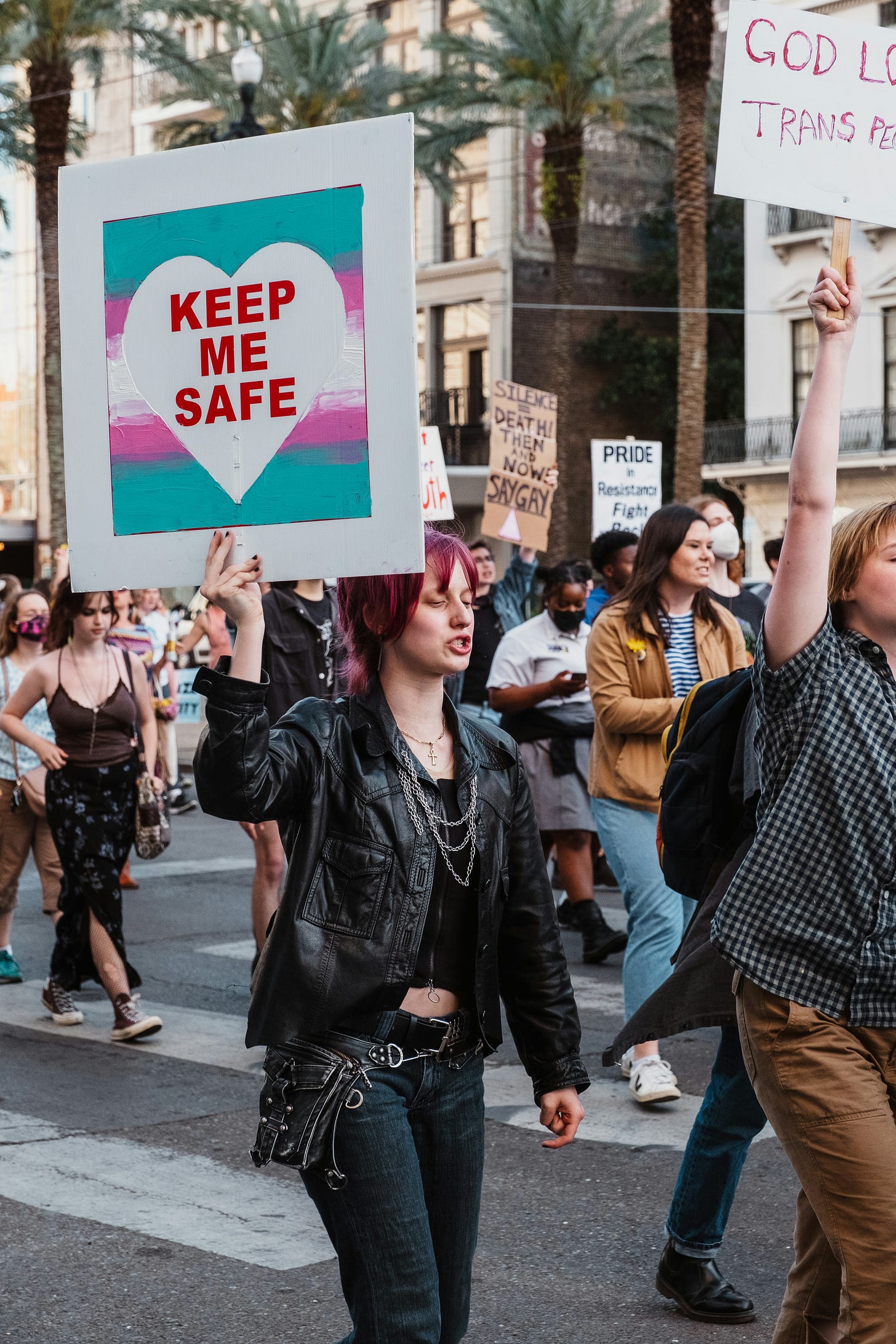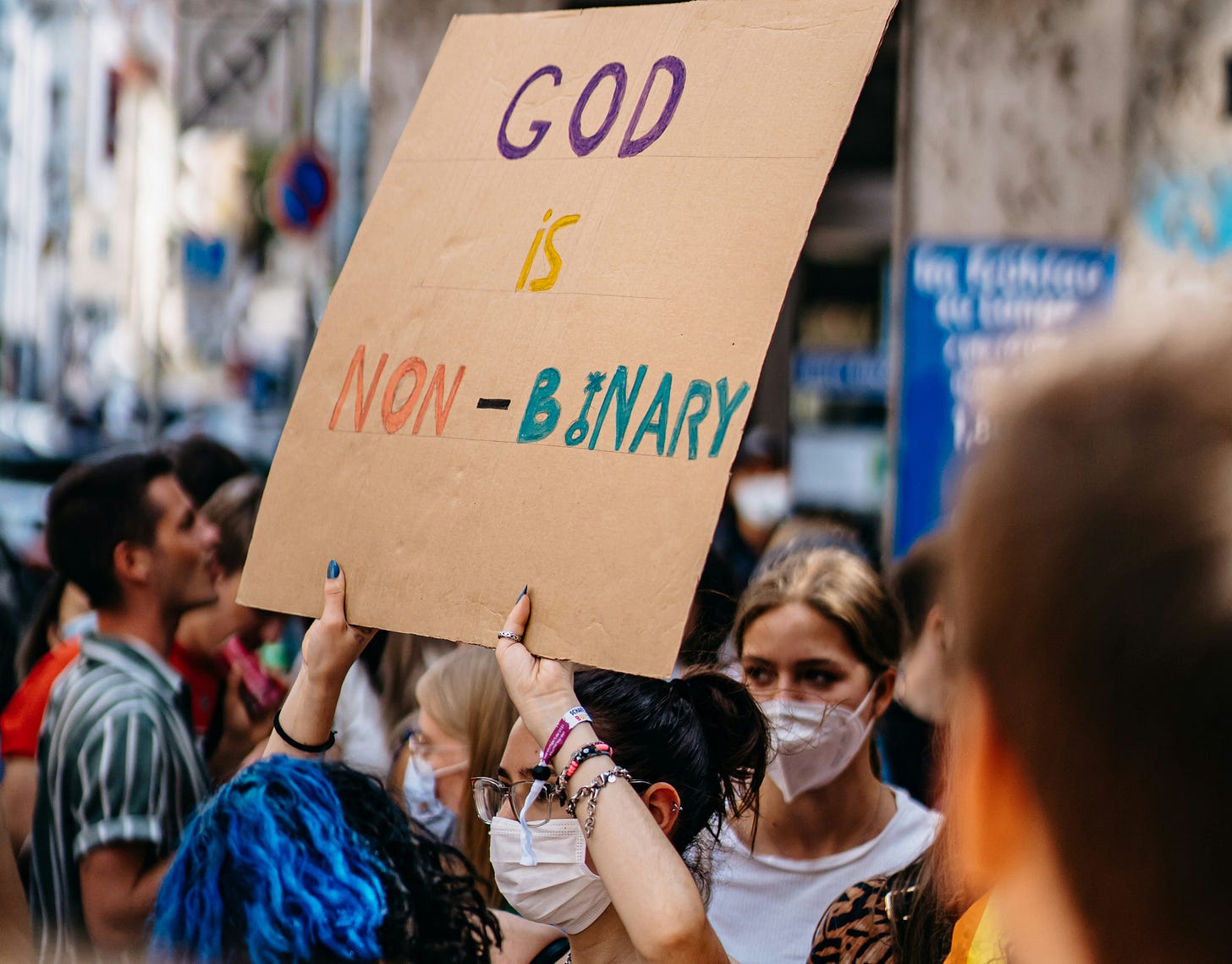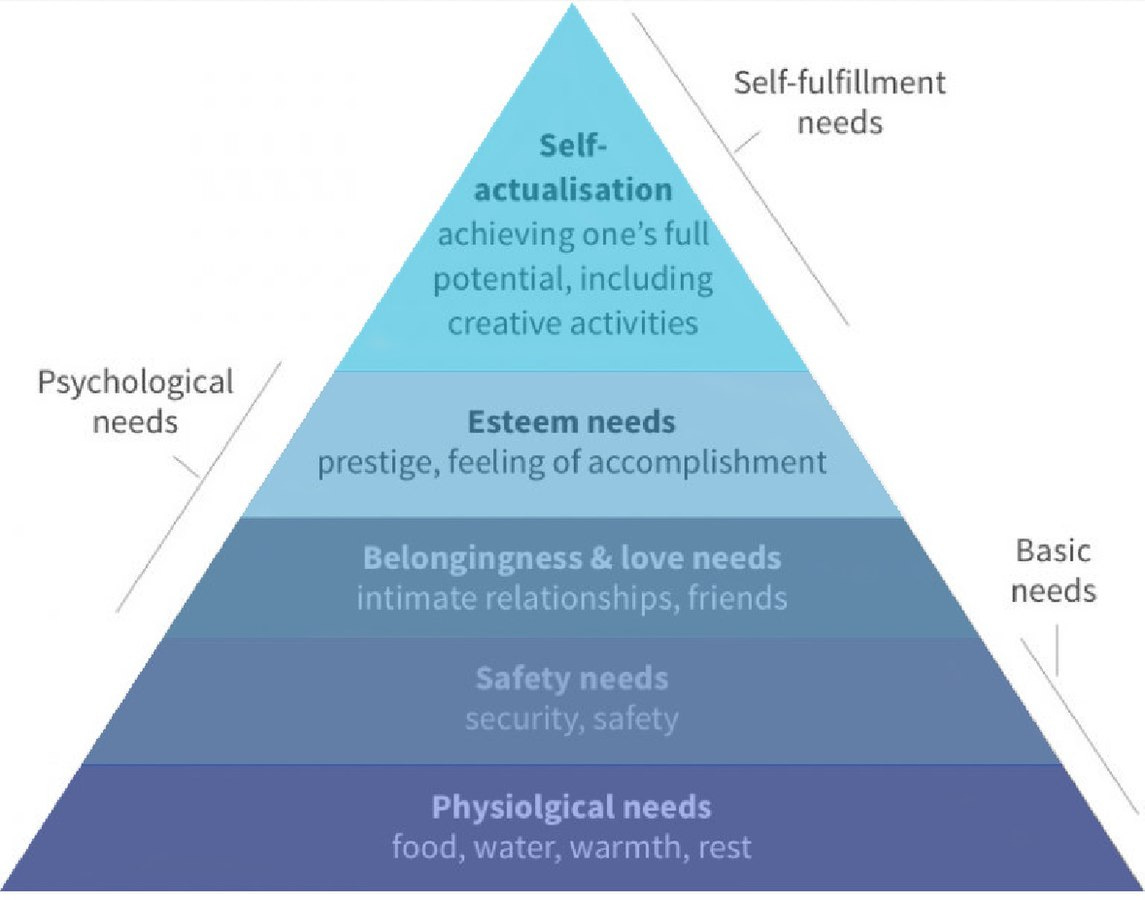The Myth of Trans Oppression

Behold: Maslow's hierarchy of needs.
Psychologist Abraham Maslow first articulated his hierarchy of needs in a paper titled “A Theory of Human Motivation,” conceiving of humans’ most important, most basic needs at the bottom, and our “high-level, intangible needs” at the top. It’s a common-sense proposition: one has the luxury of pursuing top-level needs, like self-expression, only when her lower, more basic needs are met.
Let’s consider, for a moment, the situation of those of us who can acquire and use that queer equipment staple, Manic Panic hair dye. We probably live in an industrialized country like the United States, and in terms of wealth, are in the upper 14% worldwide. We’ve gotten our bellies full enough on ranch chicken melts that we’re left with the “disposable” income necessary for so frivolous a purchase. We’ve navigated to Hot Topic without encountering a single terrorist roadblock, and we feel loved enough by family to test their loyalty via rebellious personal expression. We cruise those top two tiers of the hierarchy, enjoying the social capital of group affiliation, expressing ourselves creatively, seeking ways to make ourselves seen and understood.
That’s a high level of privilege.
If your hair color is called “Divine Wine,” if your nails are black, if you’ve lived to acquire a leather jacket and a leather bag and a mess of necklaces, like the young woman in the photo above—you probably already enjoy the safety alluded to by her protest sign.
If you can carry a protest sign, at all, without being arrested—especially one suggesting God himself is aligned with your alternative sexual identity, like the signs in the right-hand corner of the photo above, and in the photo below—you live where freedom of speech and self-expression are valued.

If you have a septum piercing or a tattoo sleeve, you’re advantaged. If you can scare up ten grand or more to modify your body, with or without insurance, you’re wealthy. If you’re bored with girls and boys and women and men, and prefer the sexless aesthetic of “agender” or “nonbinary,” you have leisure time on your hands, and you have the Internet. You’ve dodged famine and disease, war and imprisonment. You are not preoccupied with survival; the needs of your body have been met. You now dwell in the world of ideas. You’re not just not oppressed; you’ve essentially hit the pinnacle.
When you have the opportunity to change up your clothing, hair and body in ways that might prove unpopular, and you choose that option, you’ve determined that any negative social response is worth the self-actualization gained. These days, that might be because the social response is actually quite favorable.
You can have the hormones and surgeries you want, in whatever combination you want. Without “gatekeeping,” without a psychiatric evaluation, without even good evidence for their effectiveness. No other patient population controls the course of their treatment in this way.
Of course, some trans people do experience violence—especially those who date men or engage in prostitution, activities that prove dangerous for other groups, as well. But there is little evidence that people like the college students in the photographs above, or my white, middle-class ex-husband, are particularly affected. As a woman in a same-sex relationship, who came out to my mother at the age of 11, I can say the same about gays and bisexuals—at least us first-world, urban, middle class ones. “Queerness” is celebrated.
In light of this state of affairs, I’d love to see us drop our first world agendas—language policing, searching out “microaggressions,” defining ever more specific identities—to focus on the actual violence faced by women and minorities in less developed countries. Can’t we finally take the win, and look beyond ourselves?



Amen! 🙌🏼
Excellent stroll through Maslow's hierarchy of needs -- brilliant li'l piece of writing! I'd said something along these lines with regard to feminism for years -- "Can't we take the win?" We ladies here in the first world already HAD power and privelege. (I graduated in Chemical Engineering in 1994, in a class that was already 60% women -- and the chicks got all the good jobs!) Now, however, the power dynamic has shifted, and womens' rights (and women's sports, and gay rights, and same-sex spaces, etc.) are being undermined by so-called "trans-rights." So good, pointing out the leather jackets, tattoo sleeves, and nose rings... LOL, well done!
YES!! Thank you for breaking this down. I've been writing about how privilege is necessary to truly adopt the narrative that sex is fluid, since women and LGB people who live in far more violently homophobic and sexist countries cannot afford to play with this ideology, much less actually put it into practice.
The trans movement was spurred by white, middle to upper class academics, mostly men. And, the young folks who champion transgenderism are usually those who fetishize oppression, because being oppressed makes you cool, interesting, raw and tough...not to mention morally superior.
When someone is lacking the sense of purpose and identity that is born through healing and synthesizing challenges/lived experience, it makes them vulnerable to gender ideology and the package deal that is sold to them through it.